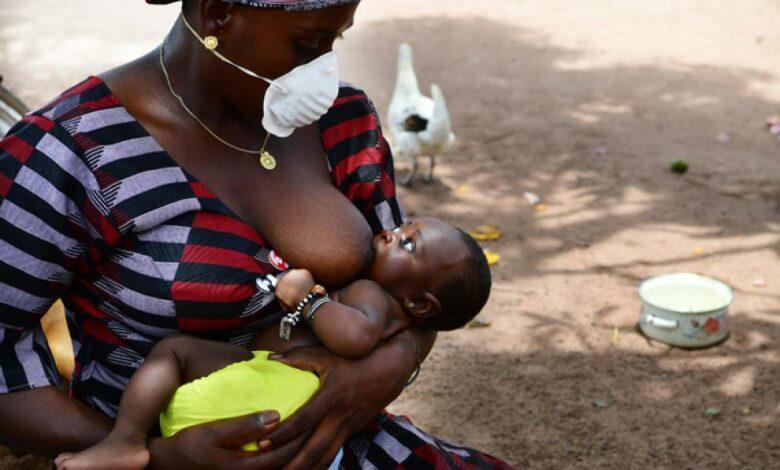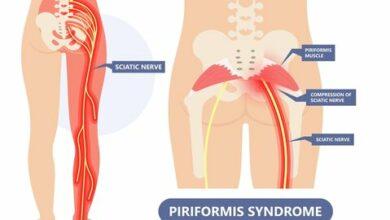
10 Factors Affecting Exclusive Breastfeeding In Nigeria
Exclusive breastfeeding, which means giving an infant only breast milk and no other liquids or solids, is important for the health and development of a child. However, various factors can affect a mother’s ability to exclusively breastfeed in Nigeria.10 Factors Affecting Exclusive Breastfeeding In Nigeria
These factors include a lack of knowledge and support from healthcare providers and family members, cultural beliefs and practices, and pressure to return to work or school after giving birth. Other factors that may affect exclusive breastfeeding in Nigeria include poverty, poor maternal nutrition, and lack of access to clean water and sanitation. These factors can make it difficult for mothers to initiate and maintain exclusive breastfeeding, and it is important to address them to promote and support exclusive breastfeeding in Nigeria.
👉 Relocate to Canada Today!
Live, Study and Work in Canada. No Payment is Required! Hurry Now click here to Apply >> Immigrate to CanadaRead Also: 10 Factors Affecting Property Value In Nigeria
What is Exclusive Breastfeeding?
Exclusive breastfeeding is the practice of feeding a baby only breast milk, without the addition of any other liquids or solids, for the first six months of the baby’s life. This includes no water, formula, juice, or food. It is recommended by the World Health Organization (WHO) as the best source of nutrition for infants.
Types of Exclusive Breastfeeding in Nigeria
There are several types of exclusive breastfeeding in Nigeria, including:Information Guide Nigeria
- Full Exclusive Breastfeeding: This involves the baby being fed only breast milk, with no other liquids or foods added.
- Predominant Breastfeeding: This involves the baby being fed mostly breast milk, with some other liquids or foods added.200 Romantic Love Message
- Partial Breastfeeding: This involves the baby being fed both breast milk and formula, or other foods.
It’s worth noting that the World Health Organization recommends exclusive breastfeeding for the first 6 months of life, as it provides all the necessary nutrients for a baby’s growth and development.
Read Also: 10 Factors Affecting Rail Transport Performance In Nigeria
Advantages of Exclusive Breastfeeding in Nigeria
- Nutritional Benefits: Exclusive breastfeeding provides the infant with all the necessary nutrients and antibodies for healthy growth and development.105 Good Morning Love Messages
- Increased Bonding: Exclusive breastfeeding can increase the bond between mother and child, as it requires close physical contact.
- Convenience: Breastfeeding can be done anywhere and at any time, making it a convenient feeding option for mothers.
- Health Benefits: Exclusive breastfeeding can reduce the risk of certain diseases and infections in both the mother and child, such as asthma, allergies, and obesity.
- Protection against Maternal Morbidity: Exclusive breastfeeding can reduce the risk of certain maternal illnesses such as breast cancer and ovarian cancer.
Read Also: 10 Factors Affecting the Growth of Commerce in Nigeria
Demerits of Exclusive Breastfeeding in Nigeria
Some potential downsides or demerits of exclusive breastfeeding in Nigeria may include:
- Limited Access to Information and Support: Many women in Nigeria may not have access to accurate information about breastfeeding or may not have a support system to help them with breastfeeding.
- Difficulty Returning to Pre-pregnancy Weight: some mothers may find it hard to lose weight after pregnancy because exclusive breastfeeding may suppress appetite and delay the return of the menstrual cycle.
- Delay in Ovulation: Exclusive breastfeeding may delay the return of ovulation, which can make it difficult for women to plan future pregnancies.5 Best Mtn Wifi in Nigeria and their prices
- Difficulty Breastfeeding in Public: Exclusive breastfeeding may also lead to difficulties breastfeeding in public, as some mothers may feel embarrassed or uncomfortable doing so.
- Limited Access to Healthcare: In Nigeria, many women may not have access to healthcare services that can help them with breastfeeding, such as lactation consultants or breastfeeding clinics.
It’s important to note that while these are potential downsides, exclusive breastfeeding is still considered the best option for babies and mothers when it’s possible.
👉 Relocate to Canada Today!
Live, Study and Work in Canada. No Payment is Required! Hurry Now click here to Apply >> Immigrate to CanadaExclusive Breastfeeding and How it is been affected in Nigeria
Exclusive breastfeeding (EBF) in Nigeria has been affected by a variety of factors throughout history. One of the main factors has been cultural beliefs and practices. Many Nigerian communities have traditionally practiced mixed feeding, where infants are given both breastmilk and other foods or liquids, such as water or formula, from a very early age. This practice is often driven by the belief that breastmilk alone is not enough to fully nourish a baby, or that supplementing with other foods can help prevent certain illnesses.
Another factor that has affected EBF in Nigeria is the lack of education and support for breastfeeding mothers. Many women in Nigeria do not have access to information about the benefits of EBF or how to properly breastfeed. Additionally, many women in Nigeria are not able to take time off work to exclusively breastfeed their babies, or may not have access to a private space to do so.
In recent years, there have been efforts to promote EBF in Nigeria, such as through campaigns and programs that educate women about the benefits of EBF and provide support for breastfeeding mothers. Despite these efforts, the rate of EBF in Nigeria remains low, with many mothers still opting to supplement with other foods or liquids.
In addition, there is a wide gap between the urban and rural areas in terms of the rate of exclusive breastfeeding in Nigeria. Exclusive breastfeeding is relatively more prevalent in urban areas than in rural areas, where cultural and traditional practices tend to be more dominant.
Read Also: 10 Factors Affecting Human Rights in Nigeria
Factors affecting Exclusive Breastfeeding in Nigeria
- Lack of education and information about the benefits of breastfeeding and proper breastfeeding techniques.
- Societal pressure to give infants supplementary foods or liquids, often due to cultural beliefs.
- Insufficient support from family members or healthcare providers.
- Difficulty with latching or milk production, which may lead to frustration and giving up on breastfeeding.
- Return to work or school, which may make it difficult for mothers to continue breastfeeding exclusively.
- Limited access to clean water and sanitation, making it difficult to properly clean and sterilize breastfeeding equipment.
- The availability and affordability of breast milk substitutes, such as formula.
- Poor maternal nutrition and health, can affect milk production and quality.
- Limited access to healthcare services, including lactation support and counseling.
- Socio-economic factors, such as poverty and lack of resources, can make it difficult for mothers to prioritize breastfeeding.MTN To Offer Prime Video Mobile Edition
Read Also: 10 Factors Affecting Women’s Participation in Politics in Nigeria
Conclusion
Several factors affect exclusive breastfeeding in Nigeria. These include cultural beliefs and practices, lack of education and support for breastfeeding, and limited access to healthcare facilities. Additionally, societal pressure to return to work or school after giving birth and the availability of infant formula also play a role. To improve rates of exclusive breastfeeding in Nigeria, it is important to address these underlying issues through education and support programs, as well as increasing access to healthcare and addressing societal pressures.
Check JAMB Result
Check and Confirm: How much is Dollar to Naira








